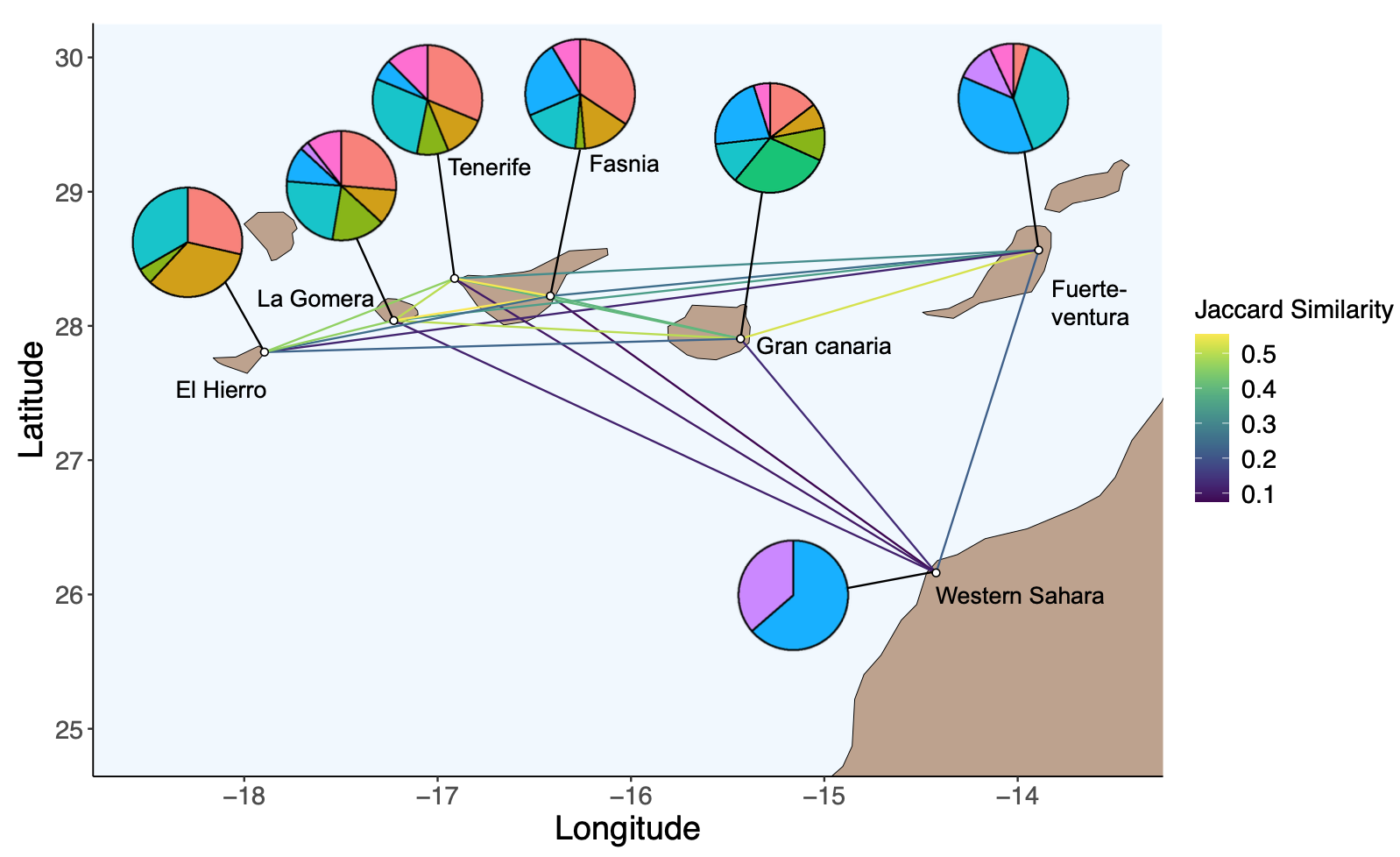Course details
Course name: Analysis of ecological-biological networks
Course number: 205-2-1609
Lecturer’s name: Shai Pilosof, pilos@post.bgu.ac.il
Course Structure: Lecture: 2 hours Exercise: 2 hours Total # of Points: 3
Course schedule: Mondays, 10:00-14:00, Main campus, building 28 room 304.
Course description
Biological systems, and specifically ecological systems, contain multiple entities that interconnect to form networks. These include gene interaction networks, food webs, plant-pollinator networks, metapopulations and networks of disease transmission. How these networks are structured is crucial for the dynamics and functioning of biological systems. This course will introduce the theory and methods for working with biological networks. Though primarily motivated by ecology, the theory and methodology we will cover is also relevant for other fields in biology, such as neuroscience, systems biology and epidemiology. Students will be actively involved in classes via paper discussions. Therefore, there is a limit of 12 students. The course, class discussions and presentations will be given in English. For the final project, students are encouraged to use their own research data.
The course is dynamic and adapted to students’ needs as much as possible. Course material and weekly meeting topics may vary from what is currently written in the syllabus at the instructor’s discretion during the semester.
Teaching
The course is given entirely in English, in a frontal way (no zoom or hybrid classes).
Course Topics (may change)
- Introduction to networks and complex systems
- Network structure
- Community detection
- Nestedness
- Robustness
- Multilayer networks
- Network dynamics
Course goals
Provide students with:
- An understanding of the (ecological) theory underlying the structure and dynamics of complex systems.
- Tools to perform network analysis on a variety of network types.
- Skills: programming and analysis of network data, advanced paper reading, presenting research, scientific writing.
Prerequisits
The only prerequisite is knowledge in programming (preferably in R, which is the language we will use). The course is general, as is the discipline of network science. Therefore, it is suitable for stuents who are interested in multiple aspects of biology. However, examples and some theory are focused on ecology. An introduction to ecology course is recommended, but not required. Knowledge in linear algebra is recommended, but not required.
Course requirements and grading
- Compulsory attendance to lectures
- Compulsory attendance to exercises
- Grade components: Project description (5%), final report (in English) 45%, presentation of project 20%, paper discussion 20%, active participation 10%.
Academic and general requirements
- The exercises are computational and students are required to bring a laptop.
- Exercises are not for submission but are recommended for hands-on experience. Exercises are written in R. Students who would like to program in another language are welcomed to do so independently.
- Recommended (not necessary) prerequisite courses: Introduction to Ecology, linear algebra.
- The course will be given in English and all the assignments will be in English too.
Example references
- Shapiro JT, Zorea A, Kav AB, Ontiveros VJ, Mizrahi I, Pilosof S. Multilayer networks of plasmid genetic similarity reveal potential pathways of gene transmission. ISME J. 2023; 1–11. doi:10.1038/s41396-023-01373-5
- Galai G, He X, Rotblat B, Pilosof S. Ecological network analysis reveals cancer-dependent chaperone-client interaction structure and robustness. Nat Commun. 2023;14: 1–11. doi:10.1038/s41467-023-41906-2
- Complexity explained. Available: https://complexityexplained.github.io
